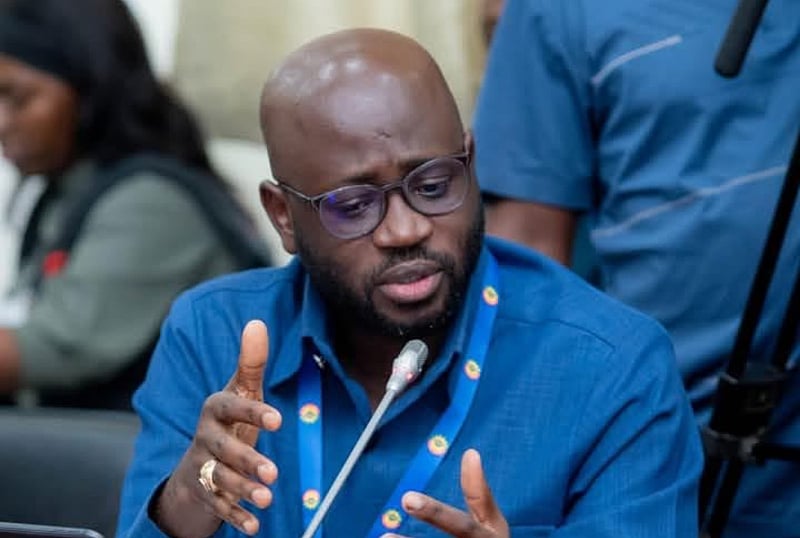The Minority caucus in Ghana’s Parliament has launched a scathing critique of the government’s recent relaunch of the chip-embedded passport, characterizing the exercise as a wasteful expenditure of public funds that failed to address the pressing issue of passport application backlogs. They argue that the relaunch, orchestrated by the new Foreign Affairs Minister, Samuel Okudzeto Ablakwa, was essentially a rebranding of a project already completed under the previous administration, offering no tangible improvements to the passport acquisition process. Instead, the Minority contends, the relaunch diverted much-needed resources away from actual service delivery, exacerbating the existing challenges faced by citizens seeking passports. The Minority’s accusations paint a picture of a government prioritizing optics over practical solutions, leaving citizens struggling with delays and missed opportunities.
At the heart of the Minority’s argument is the assertion that the chip-embedded passport project was fully developed and launched during the tenure of the previous administration. Nana Asafo Adjei Ayeh, the Deputy Ranking Member on the Foreign Affairs Committee, detailed the previous government’s efforts, which included the completion of all necessary testing, the formal launch of the project in December 2024, the procurement of 50,000 passport booklets, and a standing order for an additional 200,000 booklets. This, they argue, demonstrates that the current government inherited a fully functional system, requiring no elaborate relaunch. The Minority questions the rationale behind spending $1.2 million on an event that, in their view, added no value to the existing infrastructure or processes.
The Minority’s critique extends beyond the financial implications of the relaunch. They highlight the persistent backlog of passport applications, which they attribute to the government’s mismanagement and inefficiency. As of June 2025, according to Mr. Ayeh, the Passport Office had accumulated a staggering 232,467 unprinted applications, a stark indicator of the system’s inability to meet the demands of the public. This backlog, they argue, has real-world consequences for citizens, with many experiencing significant delays in receiving their passports, despite opting for expedited services.
The human cost of these delays is a central theme in the Minority’s condemnation of the government’s handling of the passport issue. Mr. Ayeh cited instances of individuals missing scholarship deadlines and traders being stranded due to the unavailability of travel documents. He referenced a widely circulated video, viewed over 1.4 million times, which purportedly documents the struggles faced by citizens attempting to navigate the passport application process. This, the Minority asserts, is a clear demonstration of the government’s failure to prioritize the needs of its citizens. They argue that the government’s focus on symbolic gestures like the passport relaunch has come at the expense of addressing the practical challenges faced by ordinary Ghanaians.
The Minority’s criticism underscores a broader concern about government accountability and transparency. They question the justification for the $1.2 million expenditure on the relaunch, particularly in light of the existing backlog and the apparent lack of any substantial improvements resulting from the event. They call for greater transparency in the government’s handling of public funds and urge a shift in focus towards addressing the practical needs of citizens. The passport issue, they argue, is emblematic of a larger pattern of mismanagement and inefficiency within the government.
In essence, the Minority caucus paints a picture of a government prioritizing public relations over practical solutions. They contend that the relaunch of the chip-embedded passport was a costly and unnecessary exercise that failed to address the fundamental issues plaguing the passport application process. The backlog of applications, the delays experienced by citizens, and the financial implications of the relaunch are all cited as evidence of the government’s mismanagement. The Minority’s critique serves as a call for greater accountability and a renewed focus on serving the needs of the Ghanaian people.


